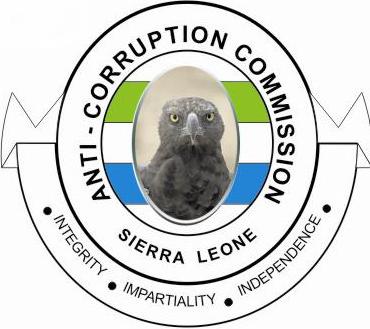By: Usman Fambuleh, Intern, Acc
Ethics and integrity play a fundamental role in the public service, serving as a cornerstone in the battle against corruption. Corruption, the abuse of power for personal gain, remains a significant obstacle to economic development, social justice, and effective governance.
Ethics and integrity are closely intertwined concepts, both emphasizing the importance of moral principles and honesty. Ethics refers to the set of principles and values that guide an individual or organization's behavior, while integrity is the consistent adherence to those ethical principles, even when faced with challenges or temptations.
In the context of public service, ethics and integrity require officials to act in the best interests of the public, ensuring transparency, accountability, and fairness in their decision-making processes. When public/civil servants exhibit ethical behavior and maintain their integrity, it creates an atmosphere of trust and credibility within the Government.
Corruption in the public sector takes many forms, from embezzlement and bribery to nepotism and cronyism. These unethical practices erode public trust, divert resources away from essential public services, and hinder economic growth. Therefore, combating corruption is crucial for fostering a just and prosperous society.
Public officials with strong ethical foundations are more likely to be transparent about their actions and accountable for their decisions. When citizens can trust that their Government is acting in their best interests, corruption becomes more challenging to perpetrate.
Ethical organizations actively protect and encourage whistleblowers. Individuals who expose corrupt practices require assurance that they will not face retaliation for their actions. When integrity is upheld, whistleblowers can play a pivotal role in exposing corruption.
Ethical decision-making processes prioritize fairness and impartiality. This can reduce opportunities for corrupt practices like favoritism and nepotism, ensuring that public resources are distributed equitably.
Public/Civil servants should be provided with clear codes of conduct and ethics training. This empowers them with the knowledge and tools needed to navigate ethical dilemmas and make principled decisions.
Leaders in public/civil service must set the standard for ethics and integrity. When high-ranking officials demonstrate a commitment to these principles, it sends a powerful message throughout the organization.
An ethical Government engages with its citizens, actively seeking their input and addressing their concerns. This not only fosters trust but also provides an additional layer of accountability.
Ethics and integrity in public/civil service therefore, are vital components in the fight against corruption. When public officials adhere to high ethical standards and maintain their integrity, they promote transparency, accountability, and fairness. This, in turn, builds trust among citizens and serves as a bulwark against corruption. The battle against corruption is not won solely through legislation and law enforcement but also through a commitment to ethical governance, ensuring the public sector serves the best interests of the people.
The Anti-Corruption Commission (ACC) has two important outfits that primarily ensure the mainstreaming of ethics and integrity in public service; they are the Corruption Prevention Department and the National Anti-Corruption Strategy (NACS) Secretariat.
The two Departments work directly with the leadership of public institutions to identify systems weaknesses and corruption- prone areas that adversely affect public service delivery. Where the systems are weak, the Prevention Department ensures that the weaknesses are identified and measures are put in place through recommendations to address such weaknesses. In situations where there are lack of ethical codes of conduct, the Policy and Ethics Unit, which is within the Prevention Department, ensures that one is developed to guide the ethical conducts of public officers. The National Anti-Corruption Strategy (NACS) Secretariat, on the other hand, has established Integrity Management Committees (IMCs) in most public institutions in order to mainstream integrity in these institutions and improve service delivery. It is by building systems and processes of these institutions and by mainstreaming ethics and integrity in the said entities that we can truly realize effective and efficient public service delivery.




